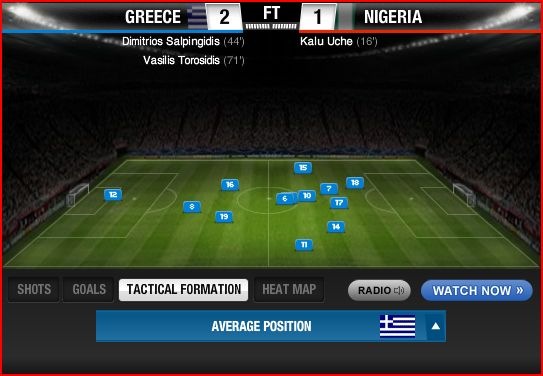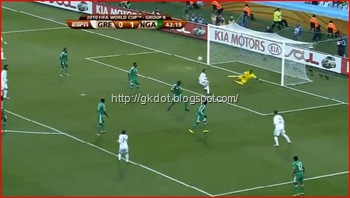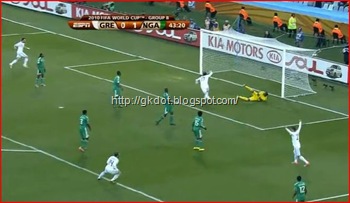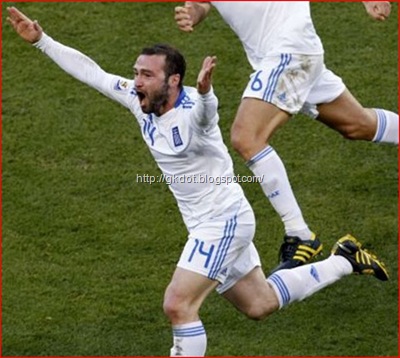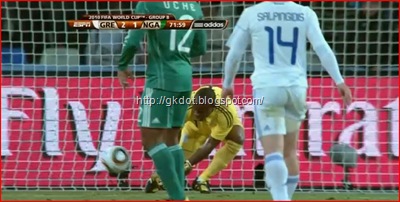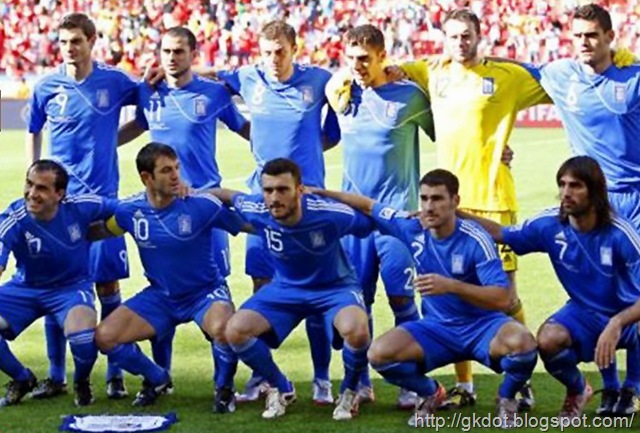Finito! A loss to Argentina by the score of two-nil ended the 2010 World Cup campaign for Greece. The goal-scorers were Martin Demichelis (77’) and Martin Palermo (89’). Argentina was obviously the better team and had a number of scoring chances with 12 shots on goal. And they lined up with much of their bench!! However Greece tried hard, was a bit unlucky (since Rehhagel had to use all three substitutions for injured players), and had a couple of decent chances.
The formation was defensive (5-4-1) with Samaras being the only striker. I assume the strategy for Greece was to play good defense with counter-attacks in order to get out of the game with a tie and then hope that Nigeria would take care of South Korea. Should Greece have lined up with a more offensive formation? Do or die? Possibly. Nevertheless it was not a bad strategy and it almost worked. Nigeria had a lot of chances but could not convert. Greece held Argentina in check for most of the game but in the end could not withstand the barrage of attacks. Tzorvas, the Greek goalkeeper, played very well today. None of the two goals were his fault.
Though in the end it was three games and out for Greece, there is a certain satisfaction with the way the team played. Granted, in the first game against South Korea the team was awful. That was the game that cost Greece the qualification to the round of 16. It is unfortunate because they played really well against Nigeria and held their own against powerhouse Argentina. The team gave Greeks a sense of pride.
I think the most important aspect of this World Cup, other than the first goals and first win, was that there a number of good young players that can step up and with proper coaching deliver good performances. We will need that in two years!!
Congratulation to Greece for their effort.
For posterity, the starting eleven players of today’s game:
Top row, left-to-right: Vyntra, Papastathopoulos, Moras, Tziolis, Kyrgiakos, Tzorvas.
Bottom row, left-to-right: Papadopoulos, Katsouranis, Torosidis, Karagounis, Samaras.

